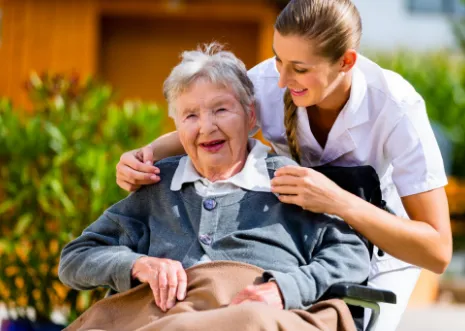Join Our Community
Sign up today to start your personalized care plan, become part of our close-knit community, and receive the dedicated support you deserve.
Our Home Care Services
Caring for you in the comfort of home.

Personal Care Assistance
Our caregivers offer personalized assistance with daily activities such as bathing, grooming, dressing, medication reminders, and mobility support. We prioritize your comfort and well-being, helping you maintain independence at home.


Palliative and Hospice Care
Our palliative and hospice care services focus on providing comfort, pain management, and emotional support to individuals with chronic or life-limiting illnesses. We work closely with patients, families, and healthcare professionals to ensure dignified end-of-life care.


Alzheimer's and
Dementia Care
Our specialized caregivers are trained to provide support for individuals with Alzheimer's and dementia. We create a safe and nurturing environment, offering memory care, cognitive stimulation, and emotional support to enhance quality of life.

Testimonials
Frequently Asked Questions
Answers To Commonly Questions
What is Bridge to Home?
We are a non-medical caregiving company based in Lincoln, NE, founded by two dedicated nurses. Our mission is to address gaps in the healthcare system by focusing on the unique needs of aging seniors and managing chronic diseases.
How do you ensure the safety and quality of care?
Our staff is trained in compassionate care and quality of communications. We are owned and directly supervised by two nurses, who own and work within the business model.
Can home care services be covered by
insurance?
We do not offer this at this time. Sorry.
Who can benefit from home care services?
Anyone who has a family with limited help or needs of friendship and companionship during their hardest time.
Are your caregivers licensed and trained?
Our owners are Registered nurses fully licensed & trained in the related fields of care. Supported by a fully trained staff.
What is the process to start home care
services?
Just visit our contact page and reach out to start a FREE CONSULTATION to see how we can be of help to your loved ones.
